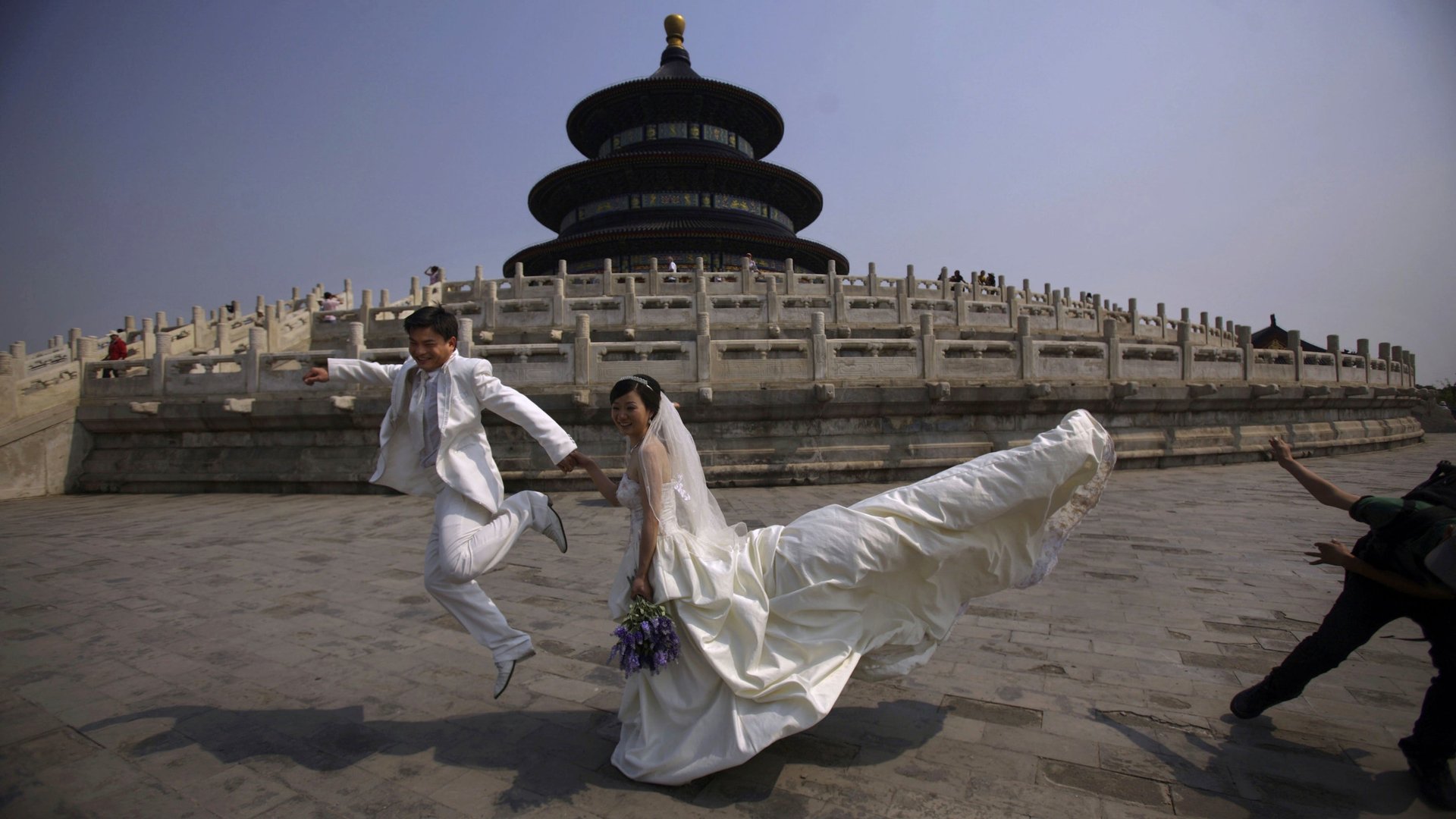In China, Bridget Jones is a man—and he’s big business
A Chinese drama whose English name would translate as “Big guy gets married“—a play on a Chinese saying that when a man is an adult, he should get married—topped the TV charts last month, according to Chinese state media. It follows the efforts of a group of men to find a wife. In this episode (in Chinese, but easy for a non-Chinese-speaker to follow), a 35-year-old man attends a wedding, returns home to an empty apartment, and falls ill. At the hospital, he tries to chat up a young nurse, who asks, “so where is your family?” He answers “I am not that old,” looking glum. She then glances at his personal details and says: “You are 35. Not married yet?” He looks ashamed.


A Chinese drama whose English name would translate as “Big guy gets married“—a play on a Chinese saying that when a man is an adult, he should get married—topped the TV charts last month, according to Chinese state media. It follows the efforts of a group of men to find a wife. In this episode (in Chinese, but easy for a non-Chinese-speaker to follow), a 35-year-old man attends a wedding, returns home to an empty apartment, and falls ill. At the hospital, he tries to chat up a young nurse, who asks, “so where is your family?” He answers “I am not that old,” looking glum. She then glances at his personal details and says: “You are 35. Not married yet?” He looks ashamed.
It is like “Bridget Jones’ Diary”, the newspaper column that became a series of novels and movies about a thirty-something single British woman—except that in China, Bridget Jones is male. The one-child policy introduced in 1978 influenced parents to abort girls in the belief that a boy would bring them more luck and financial security. There is a surplus of young males and of men approaching middle age. Those born in or after the late 1970s struggle to find a wife.
By 2020, it is forecast, China will have 24 million men who cannot find a spouse. A study published last year showed China currently has 180 million bachelors, up to half of whom were thought to be looking for love online.
Jiayuan.com, a Nasdaq-listed online dating service that claims to be China’s largest, just unveiled third-quarter results (pdf) showing it now has 73 million users, up from 40 million in March last year. While it does not publish these data regularly, Jiayuan said in its IPO prospectus that its site has a 1:1 male-female ratio. But its two biggest competitors, it said—without identifying them but citing figures from independent Chinese internet industry researcher iResearch—have a 1.25:1 and 1.42:1 male-female ratio.
So Chinese women can be picky. And spoiled. In Shanghai, where the women have a reputation for high standards, it is common to see a put-upon young man carrying his girlfriend’s handbag, miniature dog and sometimes the girl herself if her heels are uncomfortable. And Chinese women often look for the wealthiest man they can find. Spoof news site China Daily Show—the country’s version of America’s The Onion—mocked this tendency in an article where it referred to a fictional dating show called “How Much do You Earn?” But never a truer word has been spoken in jest. As one male Jiayuan.com customer told the Wall Street Journal, most of the women who contacted him on the site asked about his salary and whether he owns a home.
Some Chinese men now travel to Vietnam in search of a wife. That is a growing business too. Here is a collection compiled by Chinese website Sohu.com last year of newspaper and video advertisements by firms offering such matchmaking services.